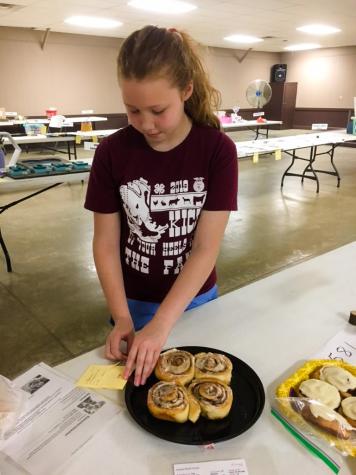The Issue
Youth involved in 4-H have the opportunity to be members from ages eight to eighteen. According to a 2009 study from Tufts University, 4-H youth appear to have higher levels of developmental assets that are found to be most important in positive youth development (Lerner et al., 2009). Assessment of long-term 4-H programming is critical to evaluate the success of meeting the objectives of positive youth development. The objectives of this evaluation were to gain insight into the soft and technical skills youth may have acquired through ten years of 4-H participation, as well as, to describe the impact of learning life skills.
What was done
A ten-question survey was mailed to 125 ten-year 4-H members in Lincoln, Montgomery, and Warren Counties from 2014-2020. Questions included -What knowledge or skills have you learned as a result of being in 4-H; Has there been a change in your behavior as a result of being a 4-H member, and Has there been a change in your social or environmental conditions as a result of being a 4-H member. Sixteen surveys were returned for a response rate of 13%.
Project Impact
Observations from the ten-year member survey yielded the following results, which have been grouped based on changes in behavior and skills learned. When reflecting on changes in behavior, 25 percent reported they gained self-confidence and 13 percent were not as nervous in front of others. Moreover, 25 percent stated they met new people and 13 percent were not afraid to talk to others.
When asked to describe the impact of their 4-H experience on their behavior, members reported the following:
- I am happier and more positive.
- I am better at public speaking and breaking out of my shell.
- I am more outgoing.
- I am more of a role model to younger kids.
- I have more direction in my life.
- I wouldn't be the person I am today had it not been for 4-H.
- I am more mature.
- I am more productive in all areas of my life.
- I have met and helped people that I would not have without 4-H.
- I now hangout with kids that have a similar background.
- I had a place where I belonged.
- Without 4-H, I might not have found my love of animals.
- 4-H is the only club I have truly enjoyed.
Results for acquired skills showed 30 percent gained leadership skills through their participation in 4-H. Additionally, 13 percent responded to becoming more responsible because of their time in 4-H. Members also described learning the following:
- I learned to control my environment.
- I learned to make better decisions.
- I learned to make career and life choices.
- I learned how to be President of my 4-H club.
Members reflected on their experiences by sharing the following impact statements - "I will remember 4-H for the community service activities" Lincoln County 4-H member, "I will remember all the memories I made with my 4-H leaders and one day I hope to be a 4-H leader too", Montgomery County 4-H member, "I will remember 4-H for all the fun and friendships I made" Warren County 4-H member. Based on survey results, one can determine that the 4-H program develops youth to be valued, contributing members of their community and positively impacts their lives by teaching leadership, citizenship and life skills.
References
Lerner, R. M., Lerner, J. V., Phelps, E., and colleagues (2009). Waves of the Future: The first five years of the 4-H study of positive youth development. Institute for applied research in youth development, Tufts University.
